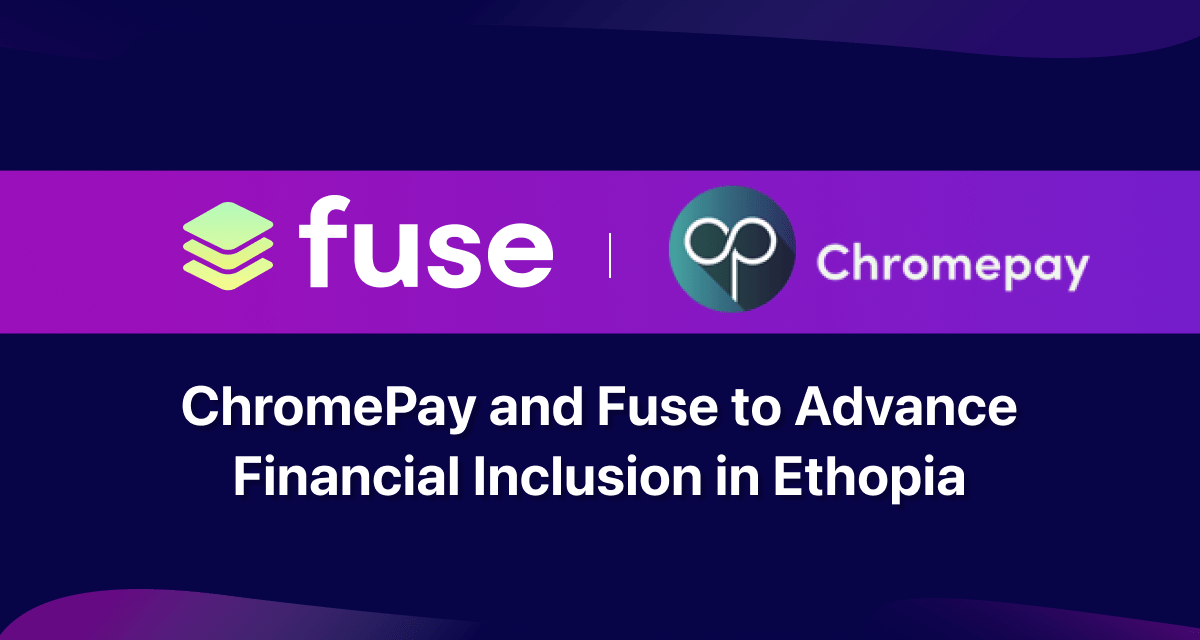Fuse has given a grant to ChromePay to deploy its decentralized identification (D-ID) solution on the Fuse Network blockchain. The grant also covers its integration into the ChromePay and Fuse wallet technology.
Blockchain technology hopes to achieve one of the essential things to boost financial inclusion for hundreds of millions of people who are not served or underserved by the current financial system. One of the significant barriers to financial inclusion in many developing countries is the absence of robust identity verification systems.
Ethiopia’s example is instructive in this regard. Currently, in Ethiopia, the Kebele ID system serves as the foundation for official personal identification, there is no national ID, and the efforts aimed at creating one have so far not come to fruition.
Kebeles are the lowest-level units of local government in the country. A kebele resident aged 18 or older can apply for an ID card from their kebele. Kebele ID cards are backed by paper records maintained by kebele offices and support other types of identification in the country.
One flaw of the kebele ID system is that the paper-based record on which it is based is fragmented among kebeles and subject to various risks, including its physical destruction or forgery. Other issues include the need to obtain new IDs when switching the kebele of residence and the absence of enforcement mechanisms ensuring that an individual may not possess IDs from several kebeles simultaneously. Finally, kebele ID cards can be easily forged, and it is difficult for third parties to verify a card’s authenticity.
Blockchain technology could provide a workable solution to the identification problem in countries where governments lack the institutional capacity to create robust personal identification systems. A public blockchain provides a ledger that is almost impossible to destroy or maliciously modify and is easily publicly verifiable. IDs can be created as unique non-fungible tokens (NFTs) that can only be controlled by the holder of their owner’s address’s private key.
The ChromePay team has been working on deploying blockchain technology to solve the ID problem in Ethiopia. The Fuse team is delighted to extend support to ChromePay in this mission.
ChromePay’s Solution
ChromePay is a digital payment-focused startup founded to address the pressing problems with financial inclusion in Africa. It already has working technology for digital payments based on web 2.0. Still, the ChromePay team concluded that utilizing blockchain technology would significantly boost its core mission.
At the core of their blockchain strategy lies their digital ID (D-ID) solution. It is based on smart contract wallets that enable connecting the wallet owner’s D-ID to the wallet from the beginning. Transactions made by users via the D-ID-linked wallet will be tied to their wallet’s address and D-ID.
D-IDs contain information and digital copies of users’ official documents, including their existing official IDs like Kebele IDs, proof of residence, biometric data, etc. These elements will be stored on a decentralized storage platform to be selected later. This approach gives users complete control over their personal information and empowers them to decide which elements they share with third parties.
Transactions made by users via the D-ID-linked wallet will be tied to their wallet’s address and their D-ID on Fuse Network. This will allow financial institutions to verify their transaction history and better evaluate their risk profiles.
How Fuse Integrates ChromePay
Fuse has provided ChromePay with a grant to deploy its digital identity solution to the Fuse Network blockchain and integrate it into Fuse’s infrastructure for application developers.
The first stage of the grant implementation involves the development of the D-ID smart contract and its deployment on the Fuse Network, as well as integrating D-IDs into the ChromePay mobile app that is being built on top of the Charge APIs.
Once the first milestone of the grant is successfully reached, ChromePay will focus on onboarding 2,000 Ethiopian farmers via two cooperatives to validate the D-ID solution. The enrolled farmers’ D-IDs will enable them to participate in a savings program on Fuse.
The Fuse team is excited by the integration, designed to address a crucial real-world use case. We are convinced that the collaboration with ChromePay will be a significant step towards realizing Fuse’s vision for bringing blockchain payments to the masses.
.svg)
.svg)











